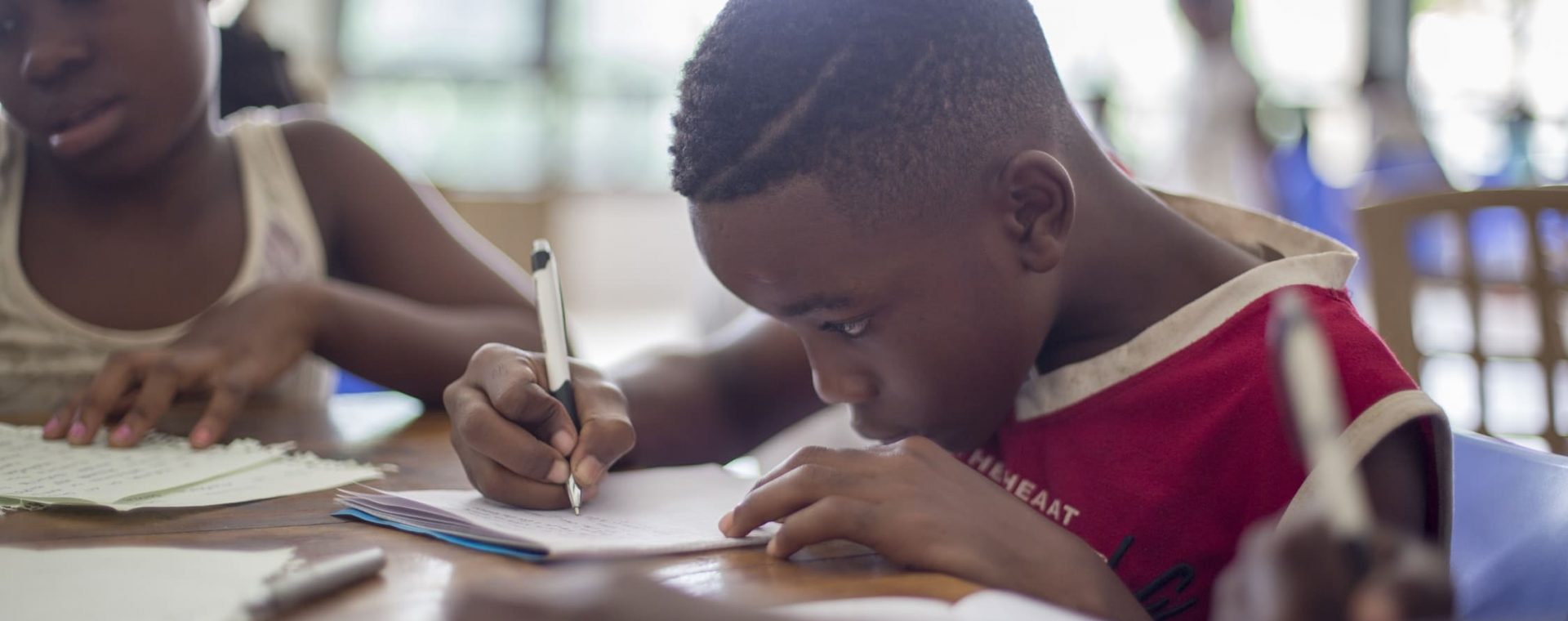
At the height of school closures due to the COVID-19 pandemic, more than 1.6 billion children around the world were out of school, some 120 million in central and west Africa. The repercussions of children missing school are more wide-ranging than a few months of lost learning: the Ebola outbreaks from 2014 to 2016 saw numerous children simply never return to school—as many as 25 percent in Liberia. The impact of a generation lost from education has far-reaching consequences for communities and wider society, for example, each additional year of learning results in an increase in earnings of 8 to 10 percent.
Education is, of course, important for all students, but it is critically important for girls to continue in education as long as possible. Despite a law in Cote D’Ivoire that requires all children to be enrolled in school until they are 16, parents will often choose to prioritize educating boys over girls at secondary level due to the costs involved. The result? When girls fall out of the education system too early, they are more prone to risks including teenage pregnancy and physical and sexual abuse, and countries bear the negative social and economic impacts.
Because of this, we needed to think creatively to help education continue for all students while schools were closed in Côte D’Ivoire. While distance learning via online channels may work in some cases, many of our children would not have reliable (or even any) internet access due to a combination of both cost and location/access factors. To overcome this, Teaching at the Right Level (TaRL)—an organization that focuses on providing primary level education based on actual student needs—partnered with the Ministry of Education in Côte D’Ivoire to develop radio programs delivering content using the TaRL approach.
Our initial aim was to create content to replace lessons while schools were closed from —students returned to class in mid-May, and schools have reopened fully in September 2020. But our approach was so successful in keeping children learning, that the government asked us to expand our efforts. We now have a full year’s worth of radio lesson scripts—more than 240 in total—with more than 140 podcasts already recorded for grades one to six. These will work in tandem with in-person learning to help children receive education whether they are in the school room, or struggle to attend because they live in remote regions. We’re also working with the Ministry of Education to explore how the radio scripts can also be delivered by teachers in the classroom.
However, there are of course challenges to delivering remote learning through any medium, and radio is no exception. In partnership with a national radio station, the Ministry of Education was able to secure airtime, and we were able to broadcast the program in remote cocoa-farming regions – areas that are known to be challenging for in-person schooling, even before the pandemic. This was all enabled through a partnership with Transforming Education in Cocoa Communities (TRECC) supported by the Jacob’s Foundation. Today, another partner, Save the Children, has an interest in expanding the program to broadcast to other target areas.
We’re thinking big in our aims for education in Côte D’Ivoire; and as decided by the government, we want to see the TaRL approach being delivered to all the primary level students. But we can’t do it on our own, and we have learned that partnerships and networks are critical to enabling our children to receive the education they need and deserve. Working with bilateral and multilateral private partners will be vital to expanding our reach in the upcoming years. For example, a partnership between UNICEF and TaRL led to the development of hygiene protocols to keep children safe and improve parents’ confidence in letting their children attend school. Similarly, the Jacobs Foundation’s current and future funding initiatives are particularly key to allowing us to reach the goal of better learning outcomes for children in Côte d’Ivoire.
I have witnessed firsthand the personal impact of networks and partnerships in making things happen. As an Amujae Leader and member of the Amujae Initiative—a program founded by former Liberian President Ellen Johnson Sirleaf to enable women leaders to excel—I know how powerful support and the voice of experience can be. Many of the coaches in the program, including Madam Sirleaf herself, have held leadership roles during previous crises, such as the Ebola epidemic. They saw firsthand the effects on children and wider society when education was disrupted – their experiences have proved to be invaluable guiding lights as we chart a course through this new crisis.
There is no doubt that the COVID-19 pandemic is a true humanitarian crisis. But, as we continue to develop partnerships with the government, education NGOs, and international development partners, I am hopeful for a future that will build on these new relationships, and draw on our shared expertise to create a brighter future for our children.


